The Search for God Page 3.2.1
When I began my search for god, I declared myself an atheist, but I quickly realized I was, in fact, an agnostic. What is atheism? Atheism states, “No god exists,” or “I believe no god exists.”

No God Exists
This is an absolute statement. This statement is like saying no pencil exists or there is no cheese on the moon. This statement can either be true or false. The atheist believes this is a true statement. What they are really saying is that based on all the evidence I know, I believe no god exists.
The Problem Of Transcendence And Limited Knowledge
Has the atheist, or humankind for that matter, explored every inch of the universe and beyond the universe? Of course not. Just like no one has ever flown to the moon and dug up every inch of soil to prove no cheese exists on the moon.
We have a problem with verification. So what atheism should claim is that “based on all the evidence I know, I believe no god exists.” Is the atheist 100% certain no god exists? Or does the atheist simply not care whether god exists, just like I don’t care whether there is cheese on the moon?
The first problem is one of knowledge. No human can claim to have all knowledge. So let’s say a human has 2% knowledge of the universe, so let’s reword the definition. “Based on my 2% knowledge of the universe, I believe no god exists.”
Or would the atheist say, “Based on my 2% knowledge of the universe, I know with 100% certainty god does not exist.” Which is it? A belief or certainty? Is the atheist 95% sure no god exists, 70% certain? There are very few things we can be 100% certain of. We outlined those laws previously.
Level Of Knowledge And Certainty
This is the first problem of atheism—the level of knowledge and the level of certainty. If I am 70% certain there is no bullet in the chamber of Russian roulette but 30% uncertain, will I play for a million dollars? A billion? My eternal soul?
What if you don’t know how many bullets are in the chamber? This is akin to the human level of knowledge of the universe. We know so little but will base a belief on it and ascribe certainty to that belief.
The human problem involves our limited knowledge of both the senses and reason; then attempting to find a being who should be transcendent. Then we claim to know with certainty that he does not exist. What prideful hubris!
After only a month of considering this line of thinking, I moved from atheism to agnosticism, which is the philosophy where I really resided anyway because I wanted information about whether god exists. That’s the second problem of atheism.

Does The Atheist Stop Searching?
Is the atheist so invested in atheism that they say, “I have enough knowledge, I don’t need anymore. I am right, and everyone else is wrong”? This is the classic example of someone unwilling to learn anything new or to be dissuaded from a belief without any further evidence. Does science function this way?
If science functioned in this manner, we might stop considering new theories or competing evidence. In the 1600s scientists might have said: “Well, that is enough research, phrenology explains all causes of psychopathology”
“I am telling you drilling holes in the head to release the evil spirits is the only way to solve this problem. I don’t care what anyone says to the contrary.”
Seeking Knowledge
Statements such as these are antithetical to research and consideration of competing ideas or science. When atheists, like scientists, lack knowledge about ultimate reality, we should continue to seek knowledge. However, human efforts to determine all of ultimate reality have failed and will fail.
Atheism should never be the proper resting place for serious scholars who seek knowledge. When we lack information, our resting place should be agnosticism, always seeking, always striving to learn more.
But not only striving for more information but also considering both sides of an argument equally. Get in those shoes, try them on, and view the world from the other perspective.
This is a failure of consideration, viewing the world from another’s point of view is hard, scary, and worrisome. We worry that maybe the other person is right; I hate being wrong.
Belief And Knowledge
So atheism rests on belief and knowledge. Then we ascribe trust or certainty to our belief and knowledge. We already know our knowledge of the universe is limited, so why believe in our own knowledge that no god exists?
Belief is the “conviction of the truth of some statement,” in this case, the statement is “No god exists.” Based on what evidence? Every belief is rooted in evidence and evidence is rooted in knowledge. You cannot make a belief claim without a knowledge claim.
Well, technically anyone can make a belief claim without knowledge, but is such a claim the best practice? I would rather remain agnostic and examine evidence.
What Next?
- What is the crucial concept?
- Atheism states no god exists. This statement can never be proven true, only false.
- Why is that significant?
- Since this statement can never be proven true, humans should be agnostic in regard to the things of god.
References And Links
- Stanford Encyclopedia of Philosophy- Atheism and Agnosticism
- Pew Research Center Logo – 8 Facts About Atheists | Pew Research Center.
- American Atheists – What is Atheism?
- Internet Encyclopedia of Philosophy – Atheism
- Atheist Alliance International – What is Atheism?
- GotQuestions – What is Atheism?
- The Conversation – Human Intelligence: Have We Reached the Limit of Knowledge?
- New World Encyclopedia – Belief and Certainty
- Very Well mind – Psychopathology: Definition, Types, and Diagnosis

Leave a Reply